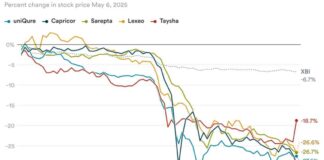Why Body Shaming Ariana Grande (and Anyone Else) Is Never Okay
Singer Ariana Grande recently took to TikTok to address the body shaming comments she has been receiving and shed light on why such behavior can be incredibly harmful, regardless of the intentions behind them. Grande emphasized the need for gentleness and restraint when it comes to commenting on people’s bodies, regardless of their size, shape, or appearance. The scrutiny Grande faced stemmed from her recent photo shoot for R.E.M. Beauty, where comparisons were made to her appearance in early 2020. Grande revealed that during that time, she was struggling with her mental health and engaging in unhealthy habits, despite appearing to be in a “healthy” state externally.
This is not the first instance of Grande facing public scrutiny over her appearance. Previously, discussions arose around changes in her makeup and hair choices following the announcement of her role as Glinda in the film adaptation of the Broadway musical Wicked. Grande’s candid TikTok video served as a reminder that public figures like herself have vulnerabilities and struggles that may not be immediately apparent to the public eye. Licensed psychologist Rachel Goldman emphasized the importance of refraining from making comments about someone’s body, as it can have detrimental effects, especially when assumptions are made based solely on outward appearances.
Celebrities like Selena Gomez have also spoken out about the harmful impact of body shaming comments. Gomez, who has been open about her struggles with mental health and autoimmune conditions, addressed the shame and pressure imposed by societal expectations regarding her body. Additionally, Gomez highlighted the importance of understanding the complexities of individual experiences and refraining from making assumptions or comments that could exacerbate existing insecurities or challenges.
The Psychological Impact of Body Shaming
Psychological experts specializing in body image underscored the harmful effects of body shaming and emphasized the need for sensitivity and empathy when discussing someone’s appearance. Keri Gans, a registered dietitian and nutritionist, explained that body image encompasses an individual’s thoughts and feelings about their physical form. Even seemingly positive comments about one’s appearance can reinforce the notion that self-worth is tied to external attributes, leading to heightened dissatisfaction and potentially triggering unhealthy behaviors.
Body image issues are further exacerbated by social comparisons and societal pressures to conform to unrealistic beauty standards. The prevalence of weight-related comments can contribute to the development of disordered eating behaviors and negative self-perceptions. Rachel Goldman cautioned against the unintended consequences of praising individuals for their appearance without considering the underlying factors that may be driving their physical changes.
Supporting Without Body Shaming
In light of the detrimental effects of body shaming, experts recommended alternative ways to show support and concern without resorting to comments about someone’s body or appearance. Taking Bella Hadid’s approach, emphasizing qualities and actions unrelated to physical attributes can foster a more positive and empowering dialogue. Hadid’s Instagram post exemplified the importance of recognizing the multifaceted nature of individuals beyond their external appearance.
Words play a significant role in shaping one’s mental health and self-esteem. Bella Hadid’s encouragement to offer a helping hand and kindness instead of unsolicited opinions serves as a powerful reminder of the impact of thoughtful communication. By focusing on traits such as kindness, strength, and intelligence, individuals can uplift others in a way that celebrates their intrinsic value rather than their outward appearance.
As Ariana Grande aptly stated in her TikTok video, expressing love and acceptance for individuals regardless of their physical attributes, makeup choices, or cosmetic procedures is paramount. By embracing a message of inclusivity and compassion, we can create a more supportive and understanding environment that values individuals for who they are beyond their appearances. Let us strive to uplift and empower one another through words and actions that embody empathy and respect.


















